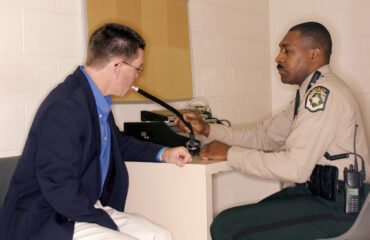Hospital liability arises from two separate and distinct sources. The first comes from malpractice committed by medical staff and the second arises from the negligence of administrative staff. The legal theories behind these two sources of litigation are different and can cause confusion for hospital administrators.
While a hospital’s liability for the negligence of its medical workforce varies from state to state, it is generally the case that staff negligence creates liability. Under the legal doctrine known as respondeat superior, any employer is vicariously liable for its employees’ negligence. So, under this theory, the hospital can be liable for malpractice committed by a physician, nurse, or other hospital employee.
Some hospital administrators have attempted to avoid this form of liability by entering into independent contractor relationships with physicians because employers are generally not vicariously liable for the actions of independent contractors. However, the courts, at least in some states, have rejected this approach when it comes to hospitals and physicians.
Attempts to Avoid Hospital Liability
In Westin Malcolm,v.The Mount Vernon Hospital 766 N.Y.S.2d 185 (2004) the New York Court of Appeals held the hospital was liable for malpractice under a theory of “agency by estoppel.” The court said the hospital was liable for the acts of an independent contacting physician, “if the physician was provided by the hospital or otherwise acting on the hospital’s behalf, and the patient reasonably believed that the physician was acting at the hospital’s behest”.
Similarly a Florida appellate court in Roessler v. Novak et al, 858 So.2d 1158, (2003) held a hospital could be liable for the independently contracted radiologist’s malpractice through an “apparent agency” theory. The court stated that if the otherwise independent contractor “appeared” to the public as the hospital’s agent then the hospital could be vicariously liable for his malpractice.
There is a striking similarity between the two approaches which, on their face, appear to apply different legal theories. In each instance, if the patient could reasonably think that the doctor was acting on the hospital’s behalf, then a physician who commits malpractice, no matter what the contractual arrangement with the hospital, exposes the hospital to vicarious liability.
Nurses May Also Trigger Liability
The actions of a nurse also may create liability for a hospital. While nurses may not be in directly in charge of a patient’s care, their actions, including the monitoring and feeding of patients, as well as administering medications, if preformed negligently, may create an action for malpractice. In Wheeler v. Yettie Kersting Mem. Hosp., 866 S.W.2d 32, Tx. Ct. App. (1993) an appellate court in Texas held that nurses who failed to properly diagnosis a woman’s pregnancy, in part by failing to use the appropriate diagnosis equipment and then failing to give the examining physician an explanation as to why the patient’s records were incomplete, had committed malpractice for which the hospital was liable.
Other hospital medical staff, such as physical therapists or mental health professionals can also commit malpractice. In Simmons v. United States 805 F.2d 1363 (9th Cir. 1986), a woman who had been emotionally abused was being treated by a mental health therapist. During the course of the treatment a sexual relationship between them began. When the relationship ended the patient, in reaction, developed new psychological problems. The court found that the therapist, by being in a sexual relationship during the therapy sessions, committed malpractice for which the hospital was vicariously liable.
Administrative Negligence
The second type of hospital liability is based on administrative negligence. This form of liability includes such areas as the hiring and firing of employees and a failure to meet the duty of care standards. The duty of care standard applies in the matters of cleanliness, sanitation and the proper disposal of equipment. In Kimberly v. Mary Hitchcock Memorial Hospital, 9 F.3d 1535 (1st Cir. 1993) a federal appellate court held a hospital liable when a woman who had just delivered a child suddenly developed herpes. The evidence showed that a different patient, who had herpes, had been placed next to the mother and that the nurses had not properly disinfected the bedding and area. The court found that these actions breached the hospital’s duty of care and found it negligent.
Hospital malpractice cases are often extraordinarily complex, and hospital administrators should ensure that all of their staff, both medical and administrative, are trained about negligence law. While not all errors can be prevented by knowing what the law requires, such training can save hospitals both the cost of litigation and the bad publicity that naturally follows such litigation.
Get more articles like this
in your inbox
Subscribe to our mailing list and get the latest information and updates to your email inbox.
Thank you for subscribing.
Something went wrong.










I had to pSs this on to Laine and Jerod. Very interesting!